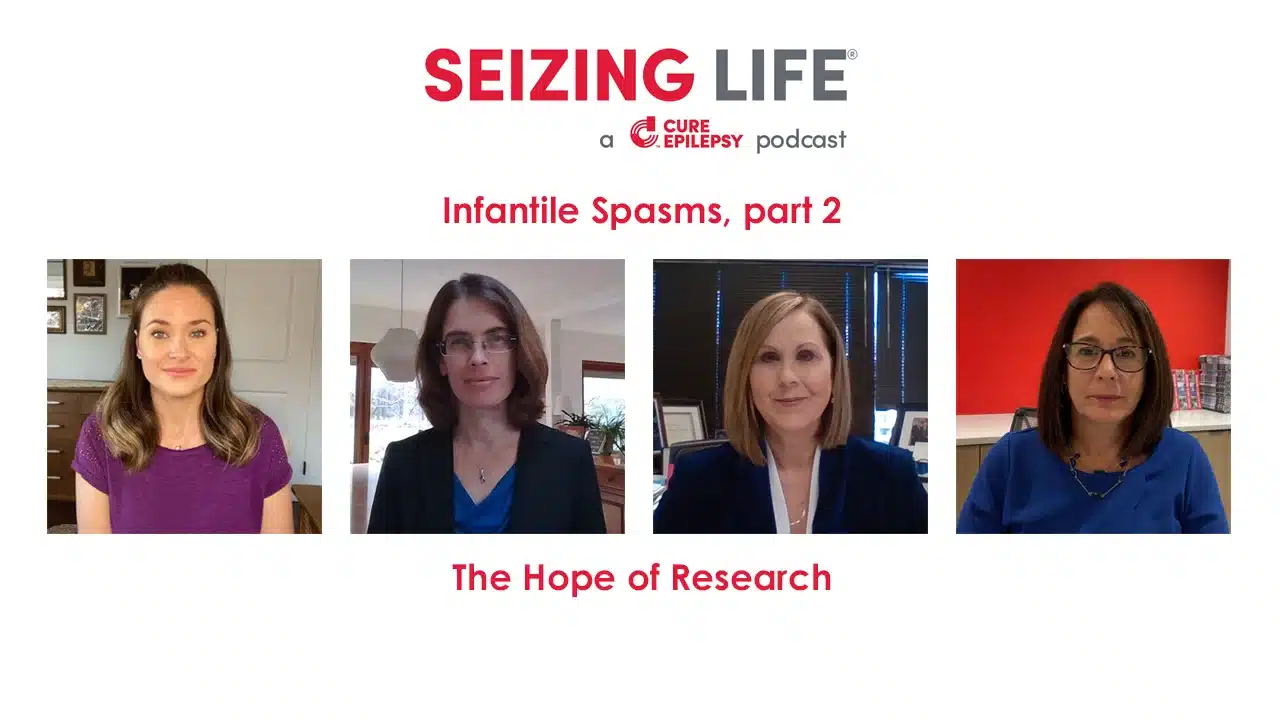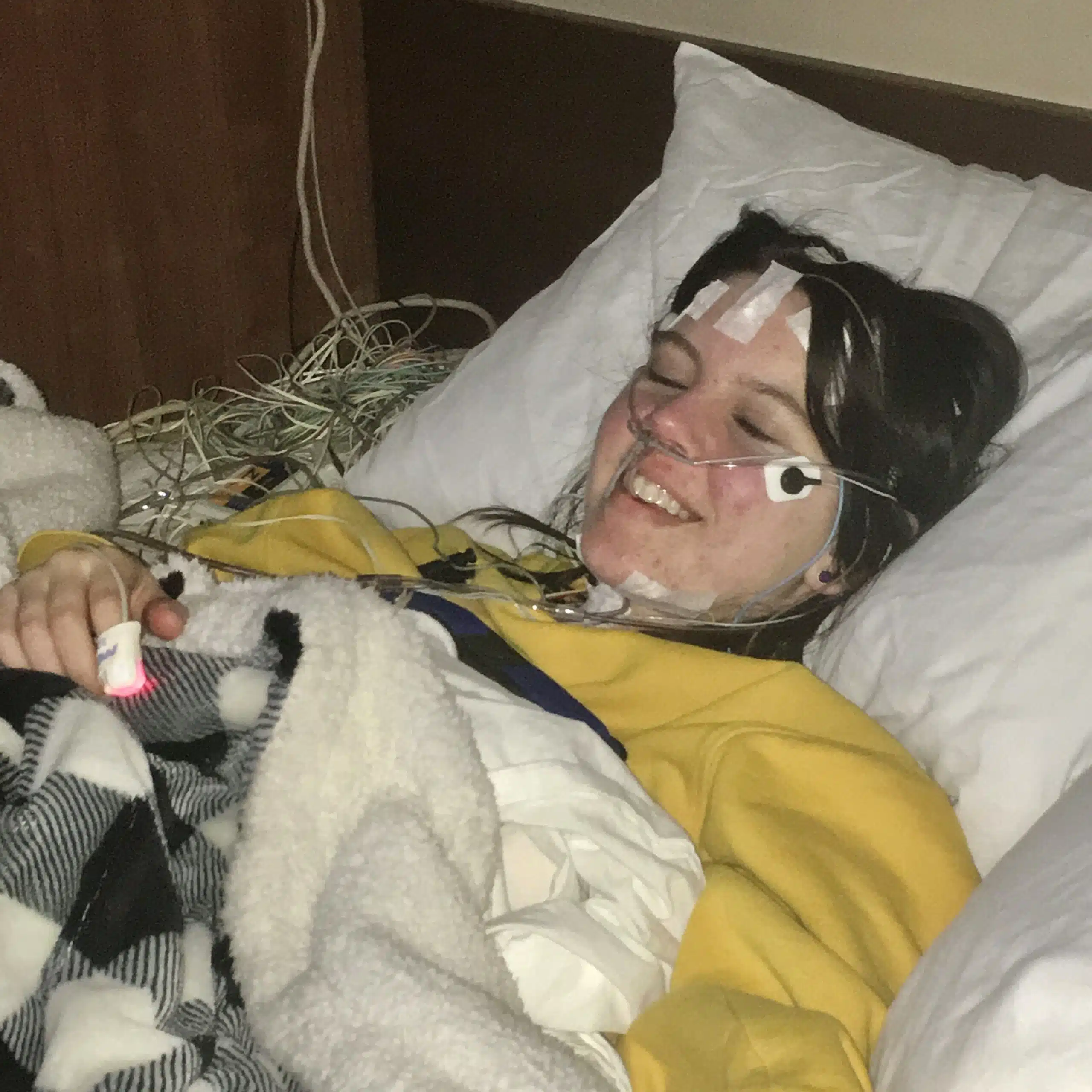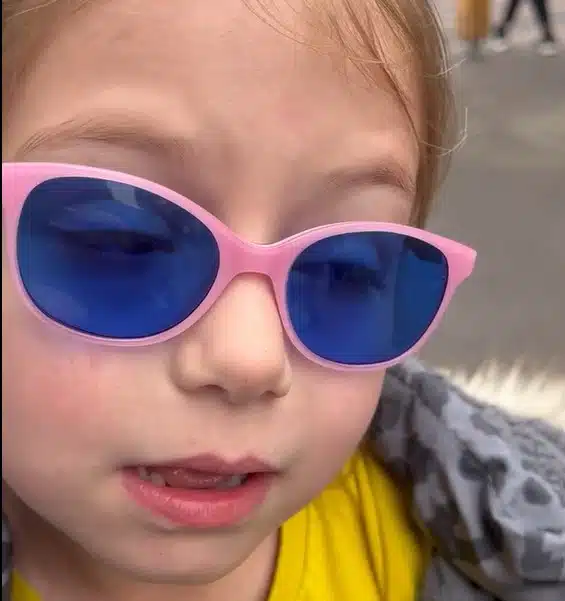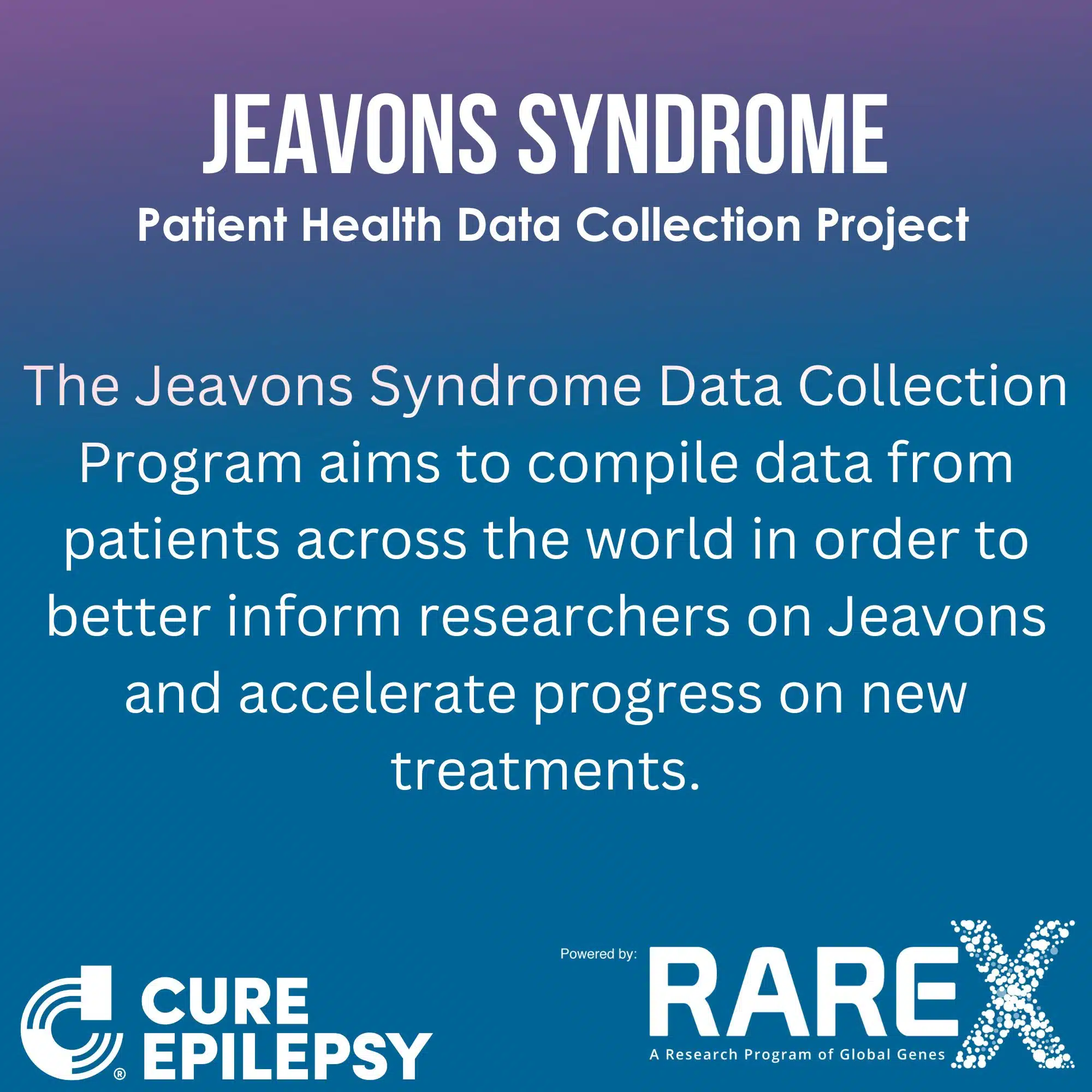a commitment to understudied epilepsies
CURE Epilepsy tackles advancing knowledge on genetic and rare epilepsies in a variety of ways. Many rare epilepsies have proven to have a genetic cause. As science advances, more and more genes have been implicated in the epilepsies, allowing for the hope of more personalized medicine. Our Rare Epilepsy Partnership Award supports the development of necessary research tools, techniques, model systems, and data collection platforms to stimulate and accelerate research on rare epilepsies.
Our Infantile Spasms Research Initiative
Learn more about infantile spasms research
The Epilepsy Genetics Initiative (EGI)
Made possible by a generous contribution from the John and Barbara Vogelstein Foundation, EGI (2015-2020) created a centralized database that holds the genetic (whole exome sequence) data of people with epilepsy. The initiative advanced our understanding of the genetic causes of epilepsy with a goal of improving the ways we prevent, diagnose, and treat this devastating neurological disorder.
Our Epilepsy with Eyelid Mycolonia (EEM) / Jeavons Syndrome Research Initiative
With the Epilepsy with Eyelid Myoclonia (EEM) / Jeavons Syndrome Initiative, CURE Epilepsy is responding to unmet needs in an underserved epilepsy syndrome. Using our expertise, network, and resources, CURE Epilepsy has jumpstarted efforts in hopes of catalyzing further interest and investment from the community.
EEM / Jeavons Syndrome OverviewWebinar with Dr. Kelsey Smith of the Mayo Clinic
More WebinarsEpilepsy with Eyelid Myoclonia (EEM) / Jeavons Syndrome Initiative phases to date have included:
- Creation of an international steering committee composed of expert neurologists, researchers and patient advocates who summarized existing knowledge, developed consensus about the diagnostic approach and clinical management of EEM and identified areas where further study is needed.
- Review of existing literature
- Use of the modified Delphi consensus process, which included three rounds of surveys to 25 physicians and 5 patients or caregivers, to develop a consensus on diagnosis and treatment
- Awareness efforts to connect patients to research and galvanize the community
- The launch of a Patient Health Data Collection Program with Rare-X to provide a place for the community to aggregate robust, secure patient data for use by medical researchers to accelerate research progress on EEM. Watch the program launch webinar here!
Other Support
Educational Impacts
While cognition and development are typically normal in people with EEM, school difficulties and attention problems may occur. There are anecdotal reports of elevated attention-deficit/hyperactivity disorder (ADHD) diagnoses. There may be a need for Individualized Educations Plans (IEPs) or other learning support. Teachers may incorrectly misinterpret eyelid myoclonia as “sass” or eye-rolling or think that absence seizures are kids “just daydreaming.” Parents of children with Jeavons syndrome may also want to discuss the impact of screen time and sensitivity to light with teachers as well as healthcare providers.
Community
There is currently no organized patient advocacy group dedicated to advocacy for Jeavons syndrome. Some CURE Epilepsy community members have found a Jeavons syndrome Facebook group to be helpful and to provide a way to share experiences with others, but we cannot speak to the accuracy of information in such online communities; you should always discuss treatments with your healthcare provider.
Like many in the epilepsy community, people with Jeavons syndrome may experience stigma and discrimination. We invite you to check out our “Say the Word Say Epilepsy” campaign, that aims to combat harmful stigma and encourages people to use the word epilepsy to increase awareness and understanding in the general public.
Other resources of interest may include:
Research
Limited research has been conducted on Jeavons syndrome. Previously published papers before CURE Epilepsy’s Epilepsy with Eyelid Myoclonia (EEM) / Jeavons Syndrome Initiative include:
- Cerulli Irelli E, Cocchi E, Ramantani G, Caraballo RH, Giuliano L, Yilmaz T; EMA Study Group. Electroclinical Features and Long-term Seizure Outcome in Patients With Eyelid Myoclonia With Absences. Neurology. 2022 May 3;98(18):e1865-e1876. doi: 10.1212/WNL.0000000000200165. Epub 2022 Mar 15. PMID: 35292555.
- Cerulli Irelli E, Cocchi E, Ramantani G, Riva A, Caraballo RH, Morano A, et al. The spectrum of epilepsy with eyelid myoclonia: delineation of disease subtypes from a large multicenter study Epilepsia. 2022 Oct 28.
- Specchio N, Wirrell EC, Scheffer IE, Nabbout R, Riney K, Samia P, et al. International League Against Epilepsy classification and definition of epilepsy syndromes with onset in childhood: Position paper by the ILAE Task Force on Nosology and Definitions Epilepsia. 2022 May 3.
- Striano P, Sofia V, Capovilla G, Rubboli G, Di Bonaventura C, Coppola A, et al. A pilot trial of levetiracetam in eyelid myoclonia with absences (Jeavons syndrome) Epilepsia. 2008 Mar;49:425-430.
- Zawar I, Toribio MGG, Xu X, Alnakhli RS, Benech D, Valappil AMN, et al. Epilepsy with Eyelid myoclonias – A diagnosis concealed in other genetic generalized epilepsies with photoparoxysmal response Epilepsy Res. 2022 Mar;181:106886.
- Zawar I, Pestana Knight EM. An Overview of the Electroencephalographic (EEG) Features of Epilepsy with Eyelid Myoclonia (Jeavons Syndrome) Neurodiagn J. 2020 Jun;60:113-127.
There are currently no clinical trials for Jeavons syndrome.













